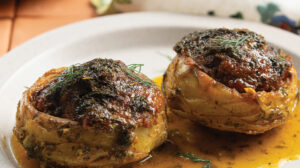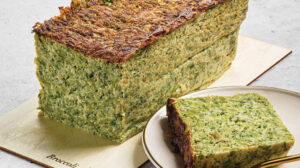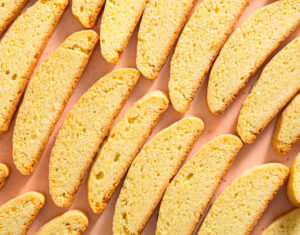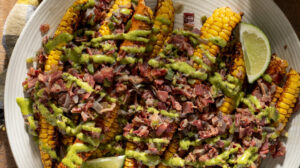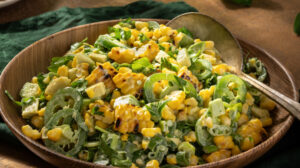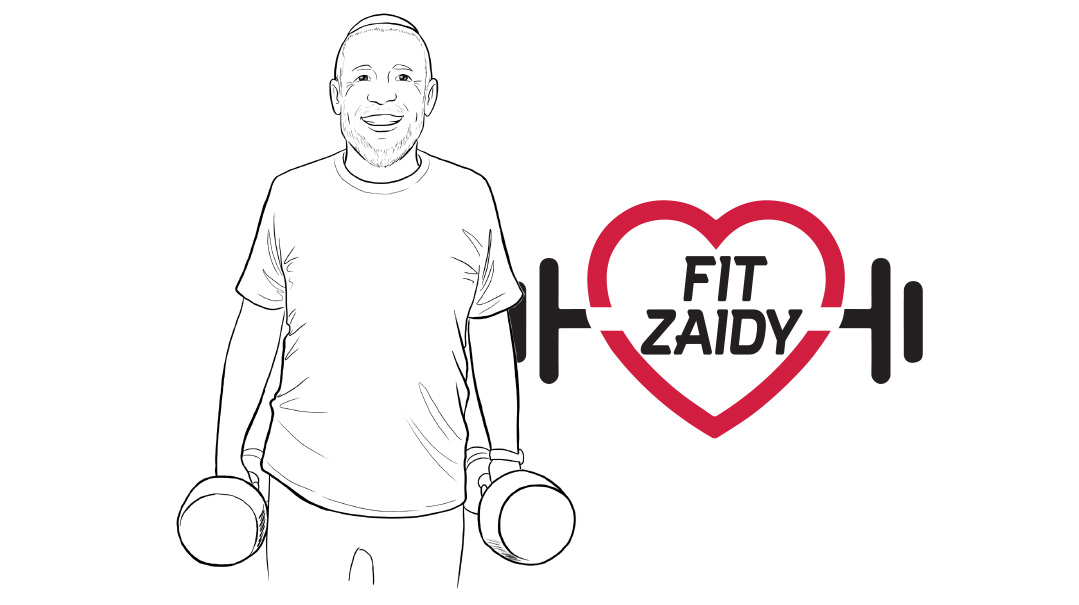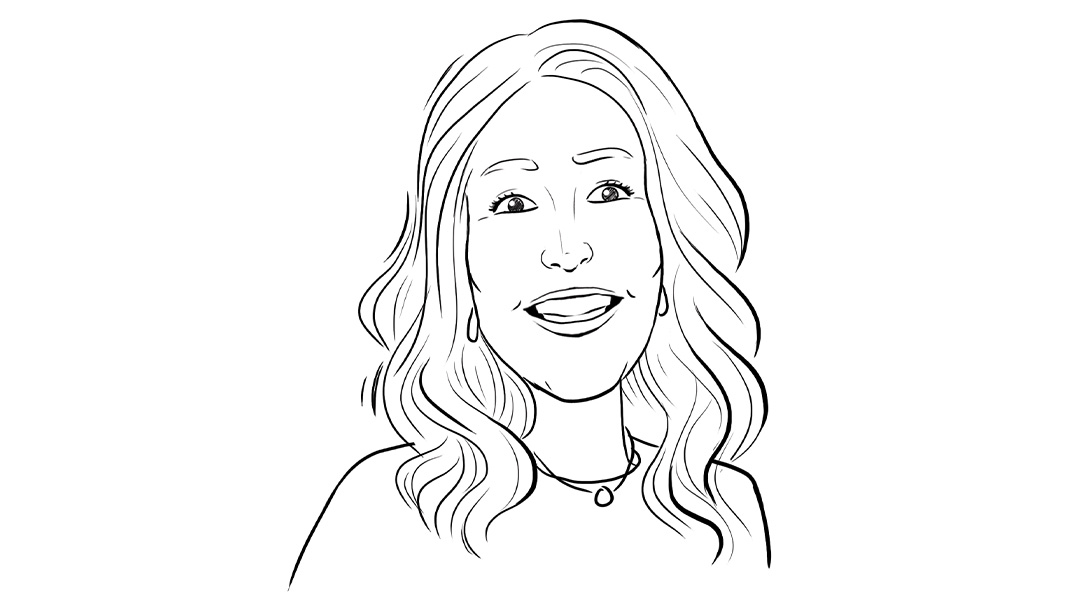Naomi Ross
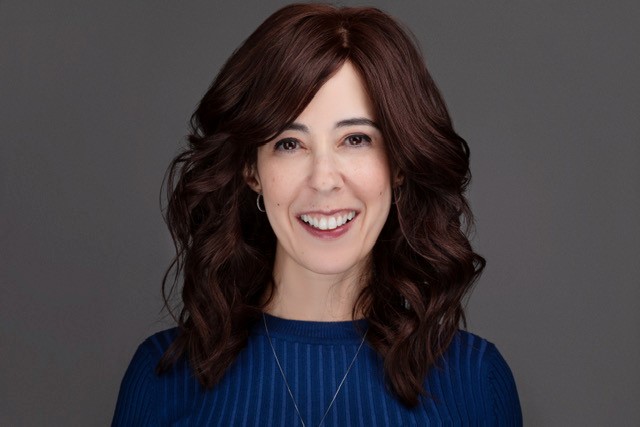
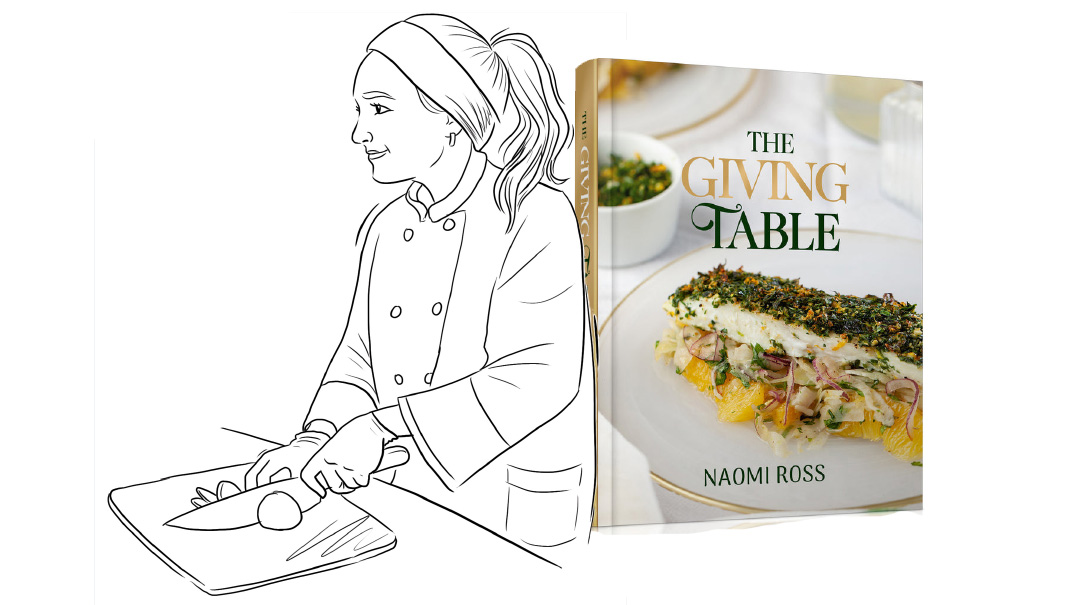
Illustration by Lea Kron
I’ve had many a teacher tell me that I sometimes make things more complicated than they need to be. When it comes to choosing Soundbites subjects, with the input of my amazing editor Chanie, I seek those with exotic food connections. (Who remembers the guy who predicted weather so food companies knew how much wheat to buy for their cookies?) Then it hit me. I’d never interviewed a cookbook author in this column!
It’s a good thing the thought came just in time to speak to Naomi Ross, who just released The Giving Table. Check out how she marries cooking and chesed into one great book!
Where is your food inspiration from?
My mom worked full time, and I spent a lot of time as a child with my grandmother. She would spend hours in the kitchen. I dedicated my cookbook to her because she cooked by feel, old school. She’d call me over periodically when she was making a dish and say, “Come taste this. What do you think, does it need more salt or pepper? Is it sweet enough?” And 20 minutes later she’d call me back to re-taste it. I didn’t realize it then, but she was teaching me how to adjust flavors based on my palate.
I started baking at 12 (which now, as an instructor, I see is normal). My mom encouraged it and taught me how to beat egg whites. In practical terms, everything I learned was from any recipes I could get my hands on. There was no Food Network or YouTube, and because cookbooks generally didn’t have photographs, a lot more imagination had to be employed.
Was being a cook always in the cards?
I was actually a music major! I didn’t have any aspirations to make a career of this. In college, I studied jazz, along with music and music theory. But in my opinion, cooking is the other side of the same coin. Both creative outlets dovetailed nicely into my third passion of writing and the language arts.
So how did you end up a cooking instructor?
As hashgachah would have it, I moved to Boston during sheva brachos, and I couldn’t find a job that didn’t expect me to have experience. Standing in the vestibule of a Boston shul one day, I overheard new kallahs bemoaning that they didn’t know how to make Shabbos. I spoke up and offered a free crash course for the beginner cook. I worked for hours putting it together, and I loved every second of it. I tried to merge the idea of cooking with some hashkafah on being a Jewish woman.
When I moved back to New York, I extended the course and began offering it there, charging a nominal fee. A pitch to teach a different class led me to become an instructor at the JCC. Whenever someone wanted to learn anything, I researched it intensively. I feel that as a culinary instructor you can’t teach if you aren’t an expert. These jobs expanded into recreational cooking classes at the Center for Kosher Culinary Arts (CKCA), training under many celebrity and executive chefs (all with the hadrachah of my rav for any questionable things I might be asked to cook).
Then Apron Masters (yes, they were featured in a Soundbites a few years back) reached out to me to become their culinary director. I was so excited to be able to design their curriculum and start up their operations!
Do you cook with recipes at home?
Sometimes I do, if it’s a specific baking recipe where the measurements are important. When I’m not restrained by recipe testing, I do what I like and I have a better flow of the creative process. That’s usually my best food.
It sounds like you’re super busy. Why write a cookbook?
The cookbook was always a dream of mine. With all the articles I’ve written, all the ideology and tips I’d given over, I had this feeling that I wanted to bring something new into the world and give it over as a whole package. But I didn’t just want to do it as theory because people aren’t looking for a sefer to read. They just want to get dinner on the table.
So how did that drive your goal for the final product?
There are so many cookbooks out there, but I wanted to be authentic to myself and my style. My style of cooking is using fresh ingredients. I don’t use convenience products. People might take their shortcuts, and on the more complicated recipes I did offer shortcuts. Yet they’re just there to give the readers permission to take them, because I don’t want to start people off with a crutch. It’s not that I don’t take my own shortcuts, but as a cooking instructor my job is to do it right and the reader can adapt the recipe as they see fit.
At the end of the day, I wanted the focus of the cooking to be about giving and the chesed we do when we feed others, hence the title and the suggestions of how to use cooking to enhance bikur cholim or hachnassas orchim, or simply to engender more bein adam l’chaveiro. In other words, it’s not about the actual food results. Cooking is a great facilitator, but the recipient of the love connected to that food gains so much more when the positive giving energy is part of the process.
Naomi in 60 Seconds
Born in Syosset, Long Island; raised in Cold Spring Harbor; and currently lives with her husband and two sons and two daughters in Woodmere. Vintage Foodie: When my mother downsized, I took her copy of the original Betty Crocker Cookbook. It was taped, re-taped, and then duct-taped. Book Gimmick: The book has 12 QR codes that link to instructional videos to give more education. Culinary executive functioning: I trailed (kind of like interning in a variety of restaurants) Chef David Kolotkin, executive chef of Prime Grill. My favorite kitchen tool: A microplane. It has so many purposes. You can use it to zest citrus, grate nutmeg, and more — it does so much.Keep it in the family: My youngest, Yosef, has a natural talent for tasting and experiments in the kitchen! He’s great at frying and is practically a grill master.
(Originally featured in Family Table, Issue 824)
Oops! We could not locate your form.

